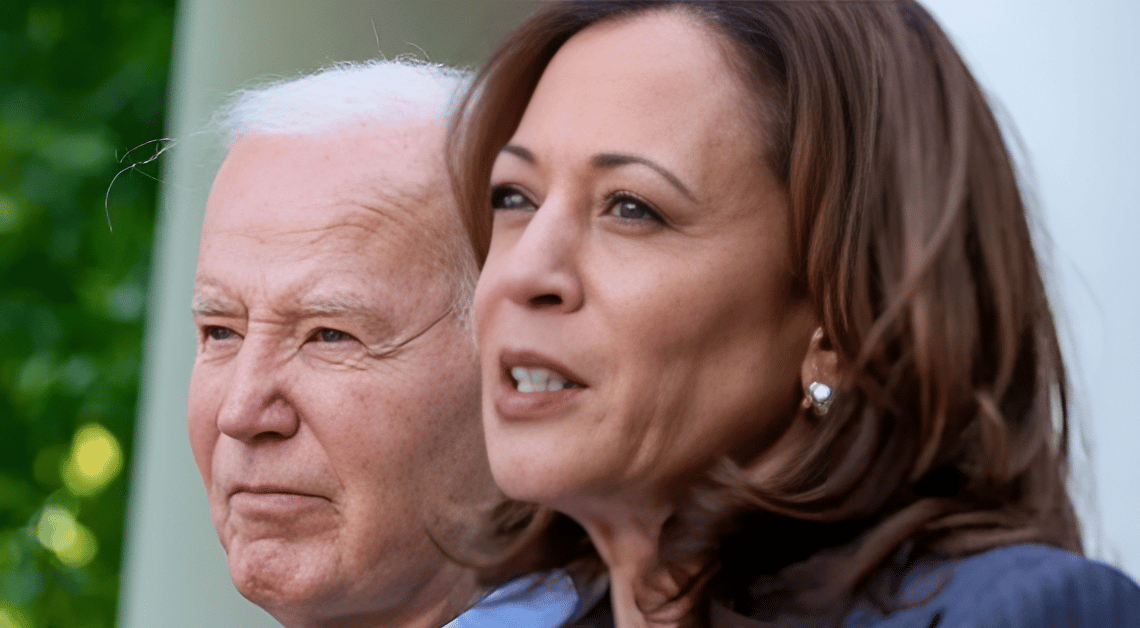When President Joe Biden announced he wouldn’t seek reelection, the political landscape was shaken. His decision, driven by immense pressure from fellow Democrats, especially after a lackluster debate performance and persistent concerns regarding his age and mental fitness, has set off a cascade of reactions within the Democratic Party. This post will explore the impact of this monumental decision and what it means for the future of the Democratic Party.
A Historic Decision
President Biden’s decision to step aside marks a historic moment in U.S. politics. At 81, he faced growing calls to reconsider his candidacy, culminating in his decision just months before the November 5 election. This move has immediate and long-term implications for the Democratic Party and its strategies.
Pressure Mounts
The pressure Biden faced wasn’t just from the public but from key figures within the party. Senate Majority Leader Chuck Schumer and over 30 House lawmakers were vocal about their concerns. Their apprehensions stemmed from Biden’s performance during the June 27 debate with former President Donald Trump and ongoing questions about his ability to handle the rigors of a second term.
Endorsement of Harris
In a significant pivot, Biden endorsed his Vice President, Kamala Harris, for the top of the ticket. This endorsement has triggered a flurry of activity and support statements from within the party, highlighting the shift in focus towards Harris as a potential leader.
Financial Windfall for Democrats
One immediate effect of Biden’s withdrawal was a surge in fundraising. The Democratic Party raised a staggering $46.7 million, marking the biggest fundraising day of the 2024 election cycle. This influx of resources will be crucial in the lead-up to the November election.
Mobilizing Resources
The funds raised will be used to bolster campaign efforts, focusing on key battleground states and supporting down-ballot candidates. The party’s ability to mobilize resources swiftly is a testament to its organizational strength and the commitment of its supporters.
Implications for Campaign Strategy
With Harris now at the forefront, the Democratic campaign strategy will likely undergo significant changes. The focus will shift towards leveraging Harris’s strengths and addressing the challenges she may face as a candidate.
The Role of the Democratic National Committee (DNC)
The DNC plays a pivotal role in navigating this transition. With Biden’s exit, the committee is tasked with implementing a transparent and fair process to select the new nominee.
Upcoming Meetings
The DNC’s rules committee is set to meet, and the process will be public, ensuring transparency. The committee’s responsibility is to ensure that the nomination process is comprehensive and expeditious, reflecting the party’s values and commitment to unity.
Communication and Guidance
The DNC has assured its members that guidance on the formal nomination process will be provided soon. The focus is on maintaining unity and swiftly nominating a candidate who can effectively challenge Donald Trump in the upcoming election.
Kamala Harris Steps Forward
Vice President Kamala Harris’s response to Biden’s endorsement has been swift and proactive. She has reached out to over 100 party leaders, members of Congress, governors, labor leaders, and advocacy organizations to express her gratitude and outline her plans.
Building Support
Harris’s outreach efforts are aimed at building a broad coalition of support within the party. Her ability to communicate her vision and earn the nomination in her own right will be crucial in the coming months.
Personal Touch
Amid her busy day of calls, Harris maintained a personal touch, arranging meals for her aides and taking time to connect with her pastor. This blend of professionalism and relatability will be essential in her campaign.
Reactions from Key Stakeholders
The reaction to Biden’s withdrawal and Harris’s potential nomination has been varied. Key stakeholders within the party and influential organizations have voiced their positions.
United Auto Workers Union (UAW)
The UAW, which had previously endorsed Biden, has acknowledged Harris as an ally but stopped short of an outright endorsement. The union’s board will meet to decide its next steps, reflecting the cautious approach many stakeholders are taking.
Major Donors
While the fundraising response has been overwhelmingly positive, some major donors have expressed hesitation. One significant donor has stated they will not fundraise for Harris if she becomes the nominee, highlighting the challenges Harris may face in securing financial backing.
The Path Ahead for the Democratic Party
President Biden’s withdrawal has set the Democratic Party on a new path, with Kamala Harris as the potential nominee. The party must now focus on unity, strategy, and effective communication to ensure success in the upcoming election.
Ensuring Party Unity
Maintaining unity within the party will be crucial. The DNC’s transparent nomination process and Harris’s proactive outreach will be key factors in fostering a cohesive and united front.
Adapting Campaign Strategies
The campaign strategies will need to adapt to the new dynamics. Leveraging Harris’s strengths, addressing potential challenges, and mobilizing resources effectively will be essential components of the strategy.
Engaging the Electorate
Engaging the electorate and addressing their concerns will be paramount. The focus should be on communicating the party’s values, policies, and vision for the future, ensuring a strong and compelling message.
Conclusion
President Biden’s decision to withdraw from the 2024 presidential race has created a pivotal moment for the Democratic Party. With Kamala Harris stepping into the spotlight, the party must unite, adapt its strategies, and engage the electorate effectively. The road ahead is challenging, but with a focused approach and commitment to its values, the Democratic Party can navigate this transition successfully.








